Roy Cohn Helped Condemn the Rosenbergs. Their Granddaughter Just Made a Film About Him.
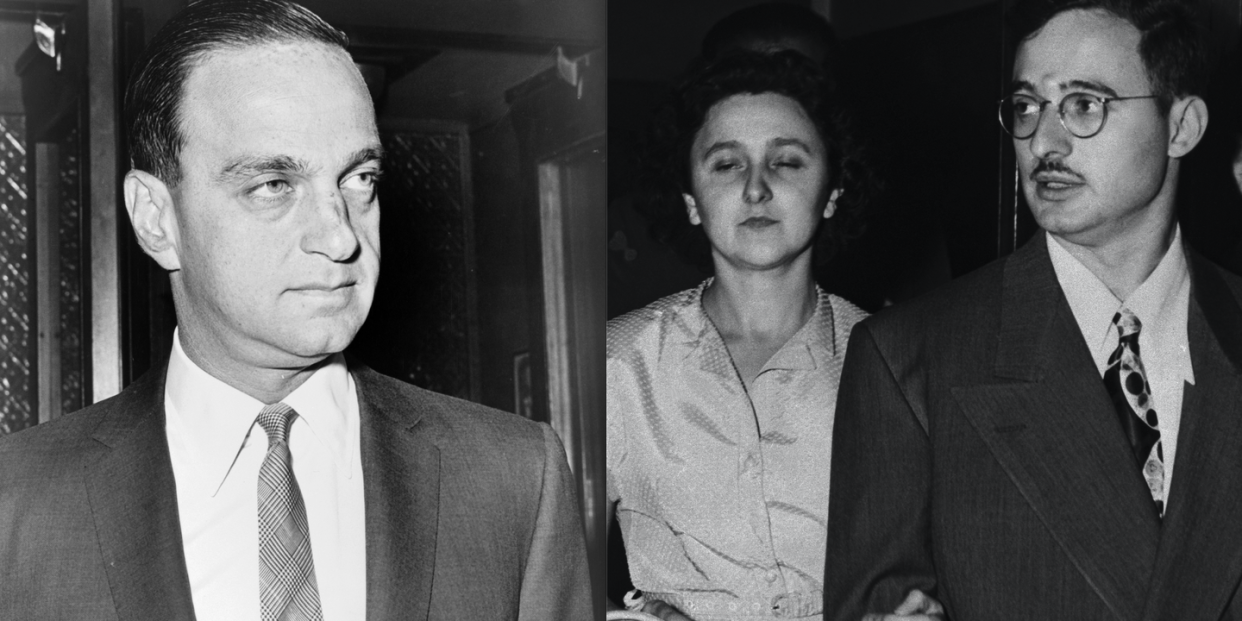
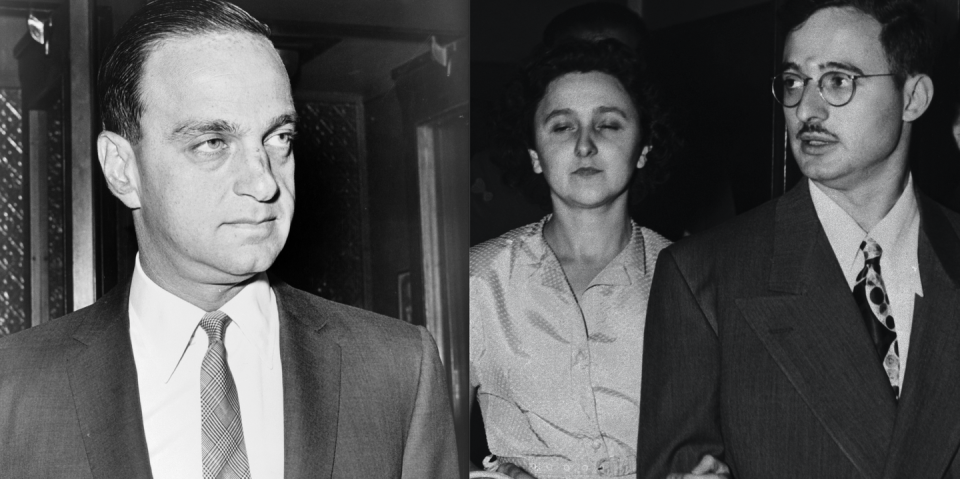
When filmmaker Ivy Meeropol was in college, she and her father Michael Meeropol visited the AIDS Memorial Quilt on the National Mall. The quilt features tens of thousands of panels memorializing AIDS victims, but the first they chanced upon was one dedicated to the memory of Roy Cohn. Three words were stitched beneath his name: “Bully,” “Coward,” and “Victim.”
For those who, like Meeropol, grew up in a “solidly leftist environment,” Cohn, an architect of the Red Scare, friend of Richard Nixon and Ronald Reagan, and a thoroughly unscrupulous power broker, is a familiar villain. He’s the poster child for venal hypocrisy and shameless cruelty—a gay, Jewish man who ruined lives by tarring Jews and homosexuals as communists while serving as chief counsel to Senator Joseph McCarthy’s investigations committee, a lawyer for mobsters and purveyor of political dirty tricks.
But the Meeropols’ connection to the infamous lawyer is far more personal and painful. Michael Meeropol was born Michael Rosenberg, and is one of the sons of Julius and Ethel Rosenberg, who were convicted of espionage and sent to the electric chair in 1953. They were the only people executed by the US for Cold War-era spying. When their parents were killed, Michael and his brother Robert were just ten and six years old.
During her childhood, Ivy Meeropol knew Cohn as “one of many names that were the bad guys in our family history,” she tells Esquire. But finding his panel on the AIDS Quilt and seeing him portrayed in Tony Kushner’s Pulitzer Prize-winning play Angels in America sparked in her a deeper interest in the lawyer. "I was just struck by this disconnect—'Wait, he was gay, and he died of AIDS and this is the same guy who prosecuted my grandparents,'" she says. When Cohn gained a renewed national relevance with the 2016 election of his one-time protégé Donald Trump, Ivy Meeropol decided to make a film. Bully. Coward. Victim. The Story of Roy Cohn, which examines Cohn’s life and legacy through interviews with friends like gossip columnist Cindy Adams and his many critics, including Meeropol's father, Kushner, and filmmaker John Waters, will premiere on HBO Thursday.
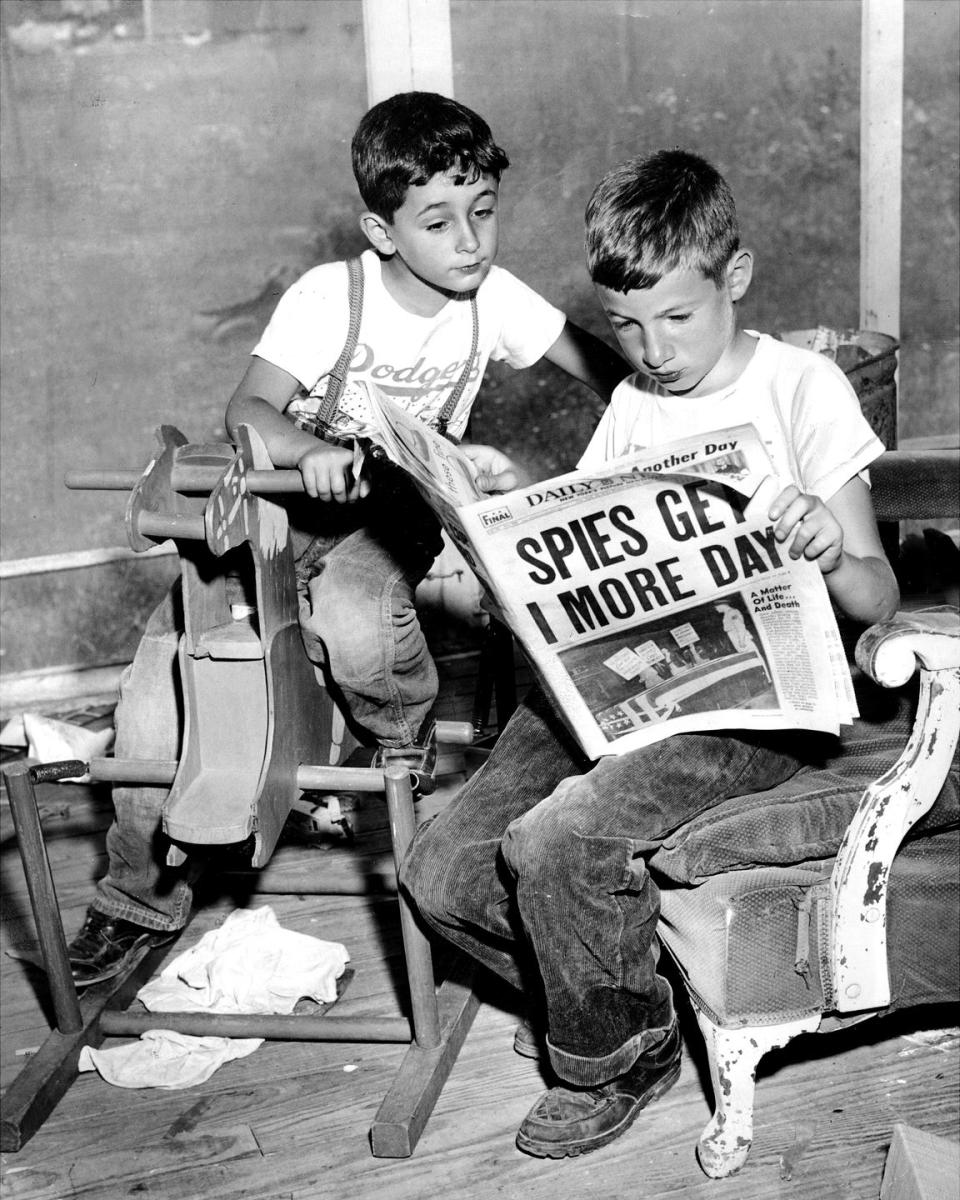
Cohn was just 23 when his role as a prosecutor in the Rosenberg trial made him a nationally-known figure. Electrical engineer Julius and his secretary wife Ethel were native New Yorkers who met in the Young Communist league in the 1930s, and were arrested in 1950. In a trial riddled with prosecutorial misconduct, the Rosenbergs were convicted of passing to Russia secrets of the atomic bomb. One of their allies later confessed that Julius did commit espionage—but historians generally agree that the information he relayed was not at all crucial to Soviet bomb-building efforts. Alan Dershowitz, a true Trump-era Forrest Gump, says in the film that Cohn told him the trial amounted to “fram[ing] guilty people.”
But Ethel was almost certainly innocent. Her brother and spy ring co-conspirator David Greenglass testified during the trial that his sister was involved in the plot, but later recanted his account, saying that, with Cohn’s encouragement, he lied to spare his own wife and family. Unlike everyone else involved in the spying operation, Ethel was never given a codename. Still, Cohn boasted in his autobiography that when trial judge Irving Kaufman, torn over whether or not to sentence Ethel to death, called him for advice, he urged the judge to condemn her. “The way I see it,” he told Kaufman, “she is worse than Julius.”
The Rosenbergs’ extended family members were too afraid of falling under the taint of communism to take in their orphaned sons. Robert and Michael were eventually adopted by Abel Meeropol, writer of the anti-lynching protest song “Strange Fruit,” and his wife Anne, after the children were introduced to the couple at a party at W.E.B. Du Bois’ home. Both grew up to be university professors.
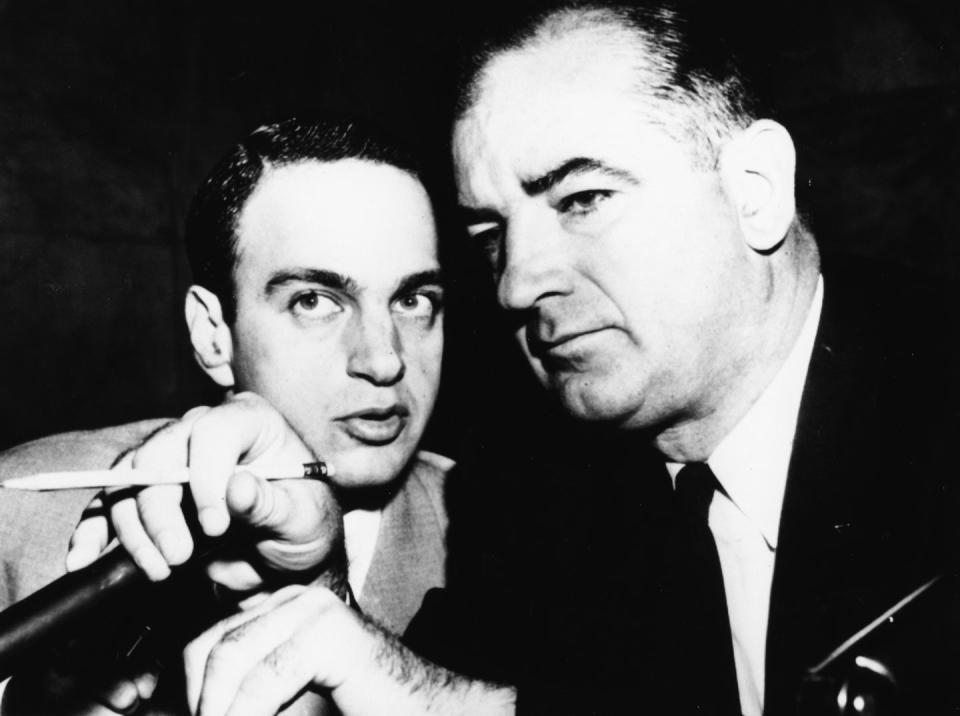
As a child, Ivy Meeropol asked her father what happened to his birth parents. "He and my mom did not want to tell me that. But eventually, I apparently pestered them enough, and they said, ‘Well, they were killed and there's a thing called the electric chair,’” she says. “That was a moment in my young life where I didn't ask any more questions for a while, because it was too hard to absorb that.”
She eventually investigated her grandparents’ story for her 2004 documentary, Heir to an Execution. Ivy Meeropol took a personal approach to the tale, filming her father and uncle returning to the Lower East Side apartment that was the last home they shared with their parents, and interviewed her grandparents’ surviving friends and political allies. And while there’s some of this personal style in Bully. Coward. Victim., mostly present in interviews with her father, Ivy Meeropol’s new film largely takes a more standard approach to telling the story of the lawyer. Cohn documentaries are now their own subsection of the How We Got Here boom industry examining the bad-intention paved path to Trump presidency hell. Where’s My Roy Cohn, from Valentino: The Last Emperor director Matt Tyrnauer, was released last year. While that project took a more straightforwardly autobiographical shape, tracing Cohn’s origins as the son of an influential New York judge through his disbarment and death in 1986, Ivy Meeropol’s film delves deep into snapshots from Cohn’s life and career, revealing the complexities of one of the 20th century’s most infamous villains.
Ivy Meeropol examines Cohn’s time in the gay holiday destination of Provincetown, Massachusetts, where he hosted dinner parties featuring candy dishes full of cocaine with sides of the sedative Tuinal. Meanwhile, in his professional life he acted as both a political fixer and straightlaced ally of the Catholic Church. He was determined not to pay his bills, either to the IRS or to private businesses—the film features one bill for a repossessed Porsche that bears Cohn’s scrawl, instructing one of his office workers to,“Try to close it out with no payment.”
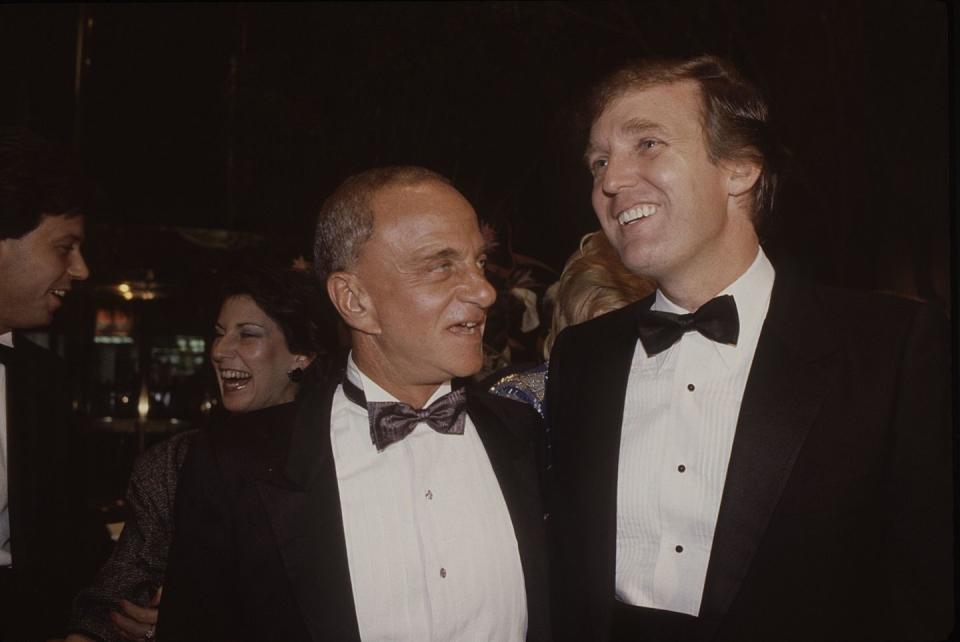
“It’s everything from a dry cleaning bill, to a bunch of ties that he buys, to a giant hotel bill. I mean, it's just unbelievable,” Ivy Meeropol says. Cohn even wrote a cover story for Parade magazine instructing readers on how to “beat” the IRS. “He would openly brag about his goal to die owing the IRS a lot of money. It sounds like someone else we know, right?”
Not only does Cohn’s shameless lying and financial chicanery echo his most famous protégé, but so does his red baiting. Just last week, Trump tweeted that 75-year-old protestor Martin Gugino, whose skull was fractured after he was pushed to the ground by a Buffalo policeman, was a member of Antifa, the loosely organized anti-fascist groups promoted as left-wing bogeymen by conservative media.
“He's going to try to do whatever he can to make everyone look like commie traitors, anti-American, not patriotic,” Ivy Meeropol says. “The language that the Trump administration is using is all too familiar and their tactics are all too familiar. We have to pay attention to our history.”
You Might Also Like

